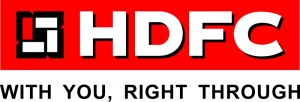
HONG KONG (Dow Jones Banking Intelligence) – Citigroup Inc.’s sale of its remaining stake in Housing Development Finance Corp (HDFC) comes as no surprise amid rising markets combined with a pressing need to find extra capital. Other Western firms have already been there in China over the last couple of years. Meanwhile Asian houses are seizing the opportunity to grow, on the back of their Western peers’ renewed asset dumps.
With markets on the up since the start of the year, block trades were always going to feature strongly across ECM desks. This contrasts with the still-subdued sentiment for new listings across Asia, despite a glimmer of hope in India at the end of last week, as Multi Commodity Exchange of India Ltd. (MCX)’s US$135 million IPO ended up more than 55 times oversubscribed, gathering investor demand of more than US$7 billion.
Against that background, and with the BSE India Sensex 30 index up more than 16% so far in 2012, Citi gro up was able – also last week – to offload its entire remaining stake of 9.9% in HDFC, the nation’s foremost mortgage lender.
This ends a seven-year relationship between the two houses, Citigroup having last June already reduced its stake from a prior 11.4% shareholding. This year’s trade raised US$1.95 billion. The deal, which represented about 31 days’ trading volume (a key measure for block trades), was initially marketed at a range of 630 to 703.55 rupees per share and ended up being priced at 657.56 rupees. This represented a discount of 6.2% to the previous day’s closing price, wider than that for private equity firm Carlyle’s sale of shares in HDFC earlier this month (which raised US$275 million at a discount of 3%), reflecting the rising market between the two trades. Warburg Pincus simultaneously sold a US$170 million stake in India’s Kotak Mahindra Bank Ltd.
But what prompted Citi to exit one of India’s best-known and most prestigious companies? Between a five-year low point in the share price in May 2009 and its mid-February 2012 high, HDFC’s share price rose 207%. The stock now trades at a price to book (based on the most recent quarter’s financials) of 4.6 times which most banks in developed markets can only dream about.
The sale by Citi reportedly netted a gain of US$1.1 billion before taxes as it – and other financial behemoths – frantically attempt to re-jig their finances to meet Basel III capital requirements. Meanwhile, slashing staff compensation is becoming commonplace, as are sales of non-strategic assets, as firms succumb to the tyranny of meeting expectations of a double-digit return on capital.
Citi is not the first – nor will it be the last – to exit such ventures in Asia. Goldman Sachs previously sold more than US$5 billion-worth of shares in Industrial & Commercial Bank of China through three separate placements, the last one being in November 2011. It is also said to be contemplating an IPO for Taikang Life Insurance Co Ltd, in which it owns a 12.02% stake bought from AXA in 2011. Also last November, Bank of America Corp. offloaded shares in China Construction Bank Corp., following a previous sale in August. Morgan Stanley parted with its 34.3% stake in China International Capital Corp. at the end of 2010, after a 15-year relationship. And UBS AG and Royal Bank of Scotland Group plc also let their respective stakes in Bank of China go in 2009, both after a four year investment.
The West’s financial giants are slowly realizing that synergies have been hard to come by, while the East’s houses have gained much expertise and knowledge through technology transfers from their American and European partners – becoming, in the meantime, the best-capitalized banks in the world. Some of these exits, such as that by UBS, were carefully managed and a long time in the making – to avoid loss of face and souring of complex relationships with partners. Others, such as the sale of shares in Bank of China Ltd. by RBS, not quite so – and undertaken at a much shorter notice.
Few such corporate stakes remain, but ECM bankers may perhaps now turn their marketing efforts to sovereign wealth funds from the Middle East and Asia, as rising markets crystallize capital gains.
Meanwhile, some of Asia’s best-known financial players are happily snapping up Western assets around the region. Samsung Life is actively vying for ING’s Asian insurance business. Malaysia’s leading house CIMB, which is reportedly set to acquire RBS’s equity business in Australia, is also said to be the last one standing to buy the firm’s Asian equities assets. It is being advised by Moelis, which is led in the region by an ex-ABN AMRO man. How the wheel turns.
(Philippe Espinasse worked as an investment banker in the U.S., Europe and Asia for more than 19 years and now writes and works as an independent consultant in Hong Kong. Visit his website at https://www.ipo-book.com. Readers should be aware that Philippe may own securities related to companies he writes about, may act as a consultant to companies he mentions and may know individuals cited in his articles. To comment on this column, please email [email protected]).
[This article was originally published on Dow Jones Banking Intelligence on 27 February 2012 and is reproduced with permission.]
Copyright (c) 2012, Dow Jones & Company, Inc.
